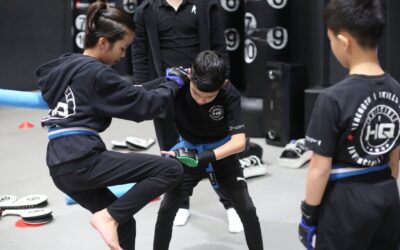When your kids fight it can drive you completely crazy. And of course when you separate them and they beg to play together again, it makes the whole situation more baffling. It’s almost impossible to figure out who “started” a conflict, and which provocations led to which retaliations. If you take sides, you increase the resentments.
So the best approach is to help your kids to learn social skills for handling conflict, which is an important part of their EQ, or Emotional Intelligence Quotient. We can’t expect them to know these skills if we don’t teach them.
1. Stay Calm.
Research shows that one of the most important things parents can do to help kids learn to manage their emotions is to stay calm themselves. Kids need to experience their parents as a “holding environment” — a safe harbor in the storm of their turbulent feelings. If you can stay calm and soothe your children, they will eventually learn to stay calm themselves, which is the first step in learning to manage their feelings.
2. Don’t take sides or worry about who started the fight.
Treat them the same when you intervene.
3. Model civility.
Say “The rule in our house is that we treat each other with kindness and respect. I hear screaming and hurting. That is not respectful, and it isn’t allowed. Can you two work this out now, or do you need time to cool off?”
4. Create ground-rules.
If they beg to continue to play, warn them that if you have to intervene again, they will be separated for a “cool-off” period.
5. Teach negotiation skills.
Your kids DO want to play together, they just don’t know how to work out conflicts. Your job is to teach them.
6. If either child is too upset to work things out at the moment, separate them.
It’s better, if you can, to listen to each child with the other one present. But if one child is too angry and is saying mean things about the other, it is best to separate them temporarily.
7. Once everyone is calm, call the kids together.
Help them each express their feelings: “So you were really mad when Jaden wanted to play a different game.” Teach empathy by asking each child how he thinks his sibling felt during the fight. Help them state their feelings and needs, listen to each other, and find a win/win resolution.
Over time, your kids will be able to talk and work it out themselves. Ask them to come to you with a description of what happened (“We wanted to play different games”) and a plan for what they will do differently next time (“We will flip a coin” or “We’ll play each game for half an hour.”)
About Invincible Worldwide




